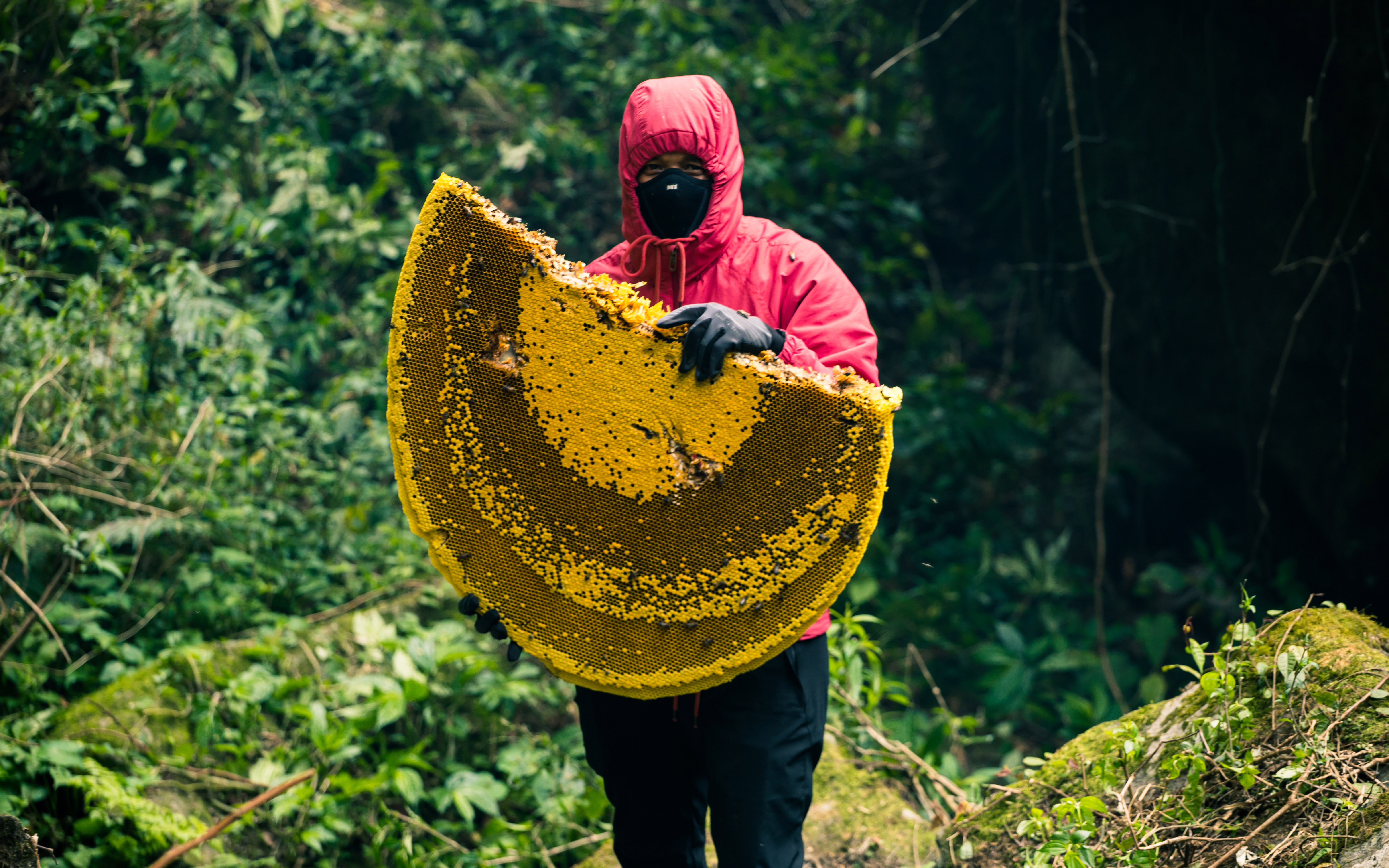Honey Hunting On Himalayan Cliffs
Written and photographed by A.P. Tolang.
Honey hunting is the gathering of honey from wild bee colonies and is one of the most ancient human activities still practiced by indigenous societies in parts of Nepal. Honey hunting is a courageous task in itself, as it is riskier than ordinary people could ever imagine. In particular, cutting honey from the vertical Himalayan hills is very dangerous. With only the help of ropes and bamboo, honey hunters routinely put their lives in danger. It requires a special artistic ability to cut the honeycomb dangling from a rope at the edge of a cliff.
In some mountainous areas of Nepal’s Himalayas, a honey hunt is organized every year. We got our invitation to this experience from the Click Nepal Photography Group. It was a wonderful opportunity to see the courageous task of honey hunting. We started our journey from Kathmandu to Siding Village on March 10, 2019, and eventually reached the organizer’s hotel in the evening by bus. It was a long day trip. They welcomed us with warm greetings and then gave us all the information needed about our destination along with some precautions.
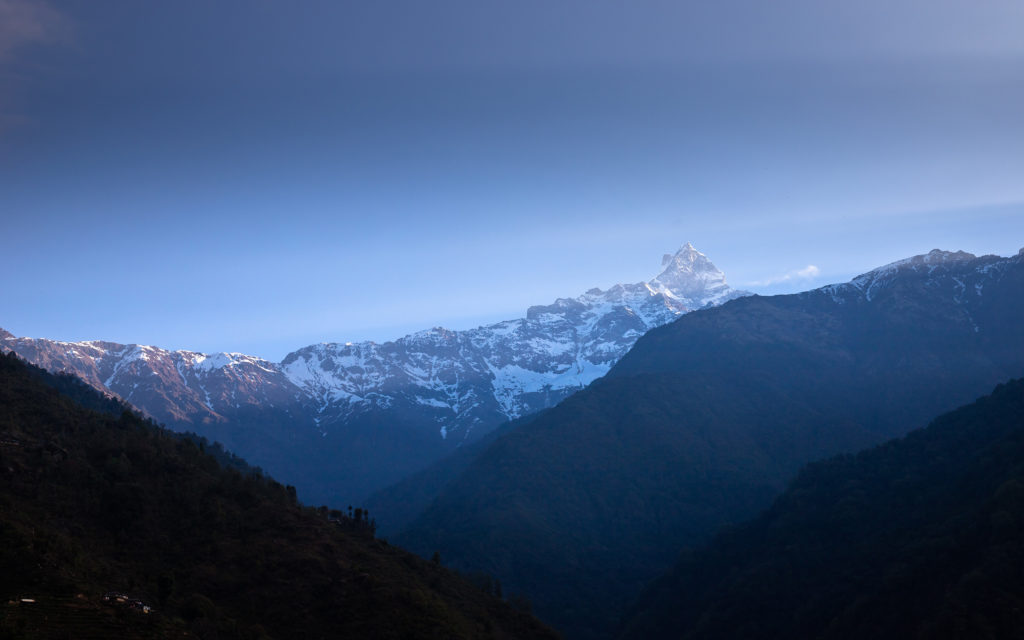
We started our morning with a cup of tea and a beautiful view of Fishtail Mountain (Photo 1) from Siding Village. After having a light breakfast, we prepared our gear, including safety equipment, and readied ourselves for an hour-long walk down unknown paths. Then, we started our walk to our honey-hunting destination with the organizing team.
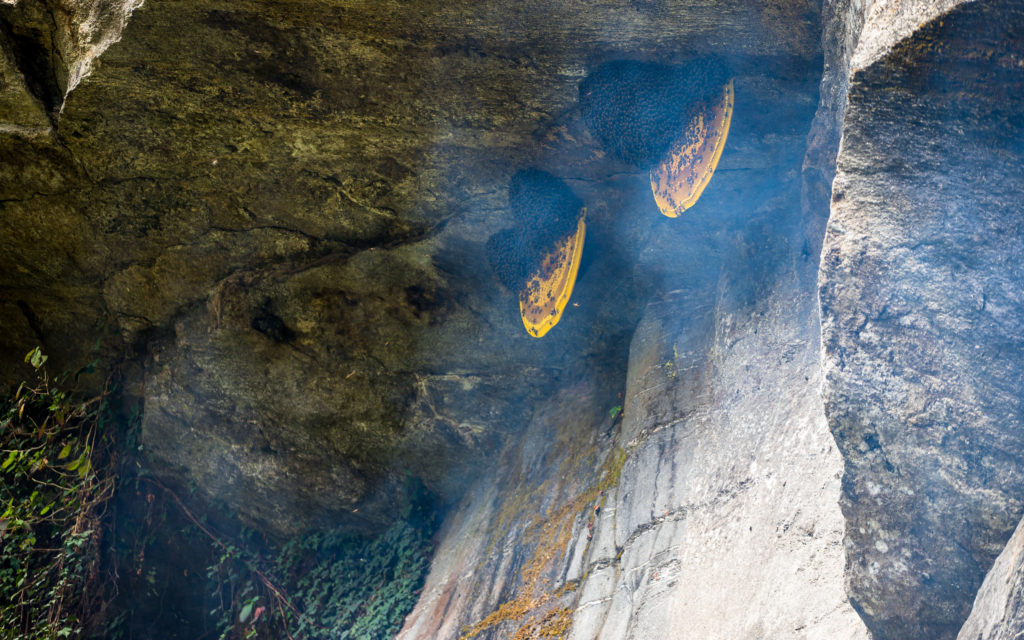
Finally, we reached the honey-hunting destination, Kopre Vir, after passing through some challenging areas. My heart was beating fast as I looked at the vertical rocky hillside. I started to wonder how anyone could cut a honeycomb off such a cliff (Photo 2). All the members of our team were looking forward to their work. Some of them made fire and smoke, while some others were managing the ropes.
Following tradition, honey hunters first worship the cliff god, whom they put their trust in. After a short prayer, work begins without interruption. The locals celebrate honey hunting as a festival by offering flowers, grains, and sheep to the cliff god before honey hunting. Naturally, our honey-hunting team members also started by worshiping the cliff god and praying for the success of the honey-hunting mission. These acts showed a deep sense of faith.
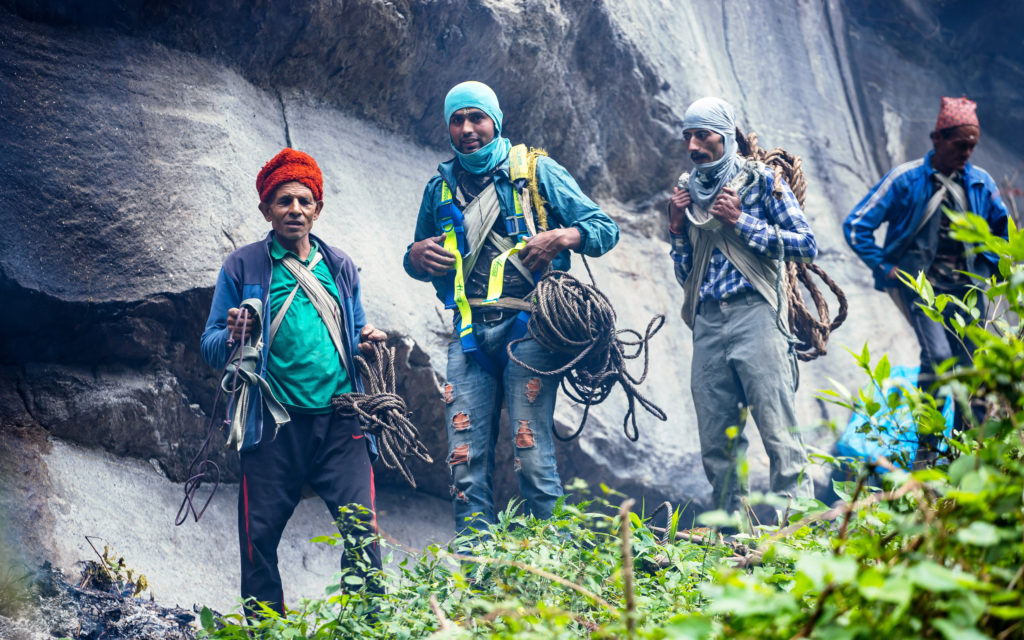
After the worship phase was completed, some of the honey hunters (Photo 3) started to climb the vertical rock cliff and some prepared and spread the fire smoke from the ground to make the bees leave the honeycomb. Then, one honey hunter started down the side of the cliff by rope. That was such a scary maneuver, but we soon saw how skilled and experienced he was at climbing. An experienced honey hunter can hang from cliffs as high as 300 meters with the help of homemade ropes and bamboo ladders.
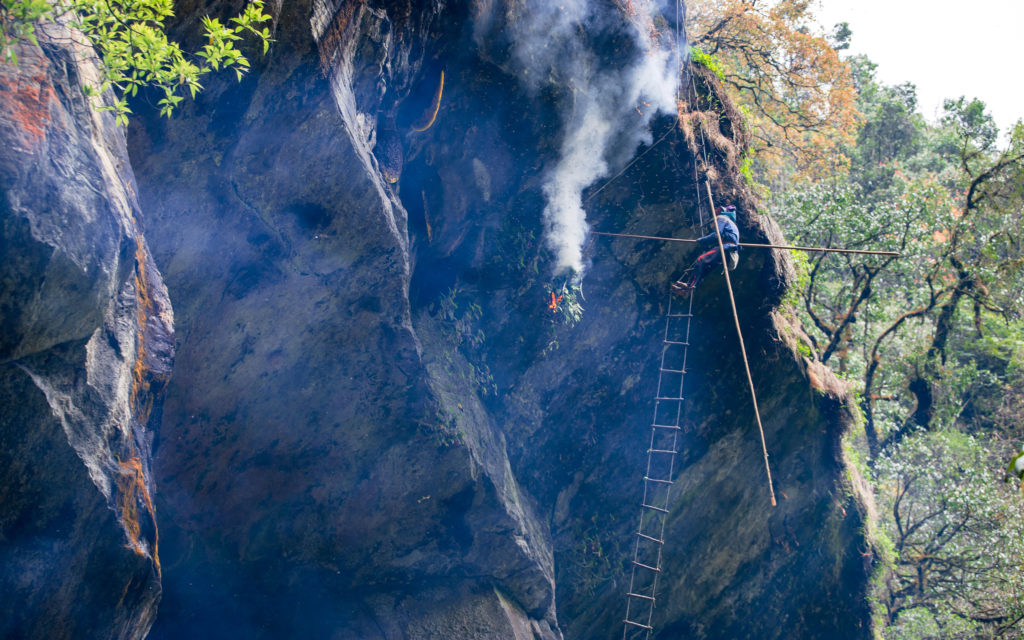
After reaching the honeycomb, he tried to spread the smoke around it to make the bees come out of the honeycomb (Photo 4). Every action was scary for us. The bees surrounded the hunter and were buzzing all around the honeycomb. Slowly, the bees left after a big struggle (Photo 5), and the hunter started cutting the honeycomb. His task was really hard and scary.
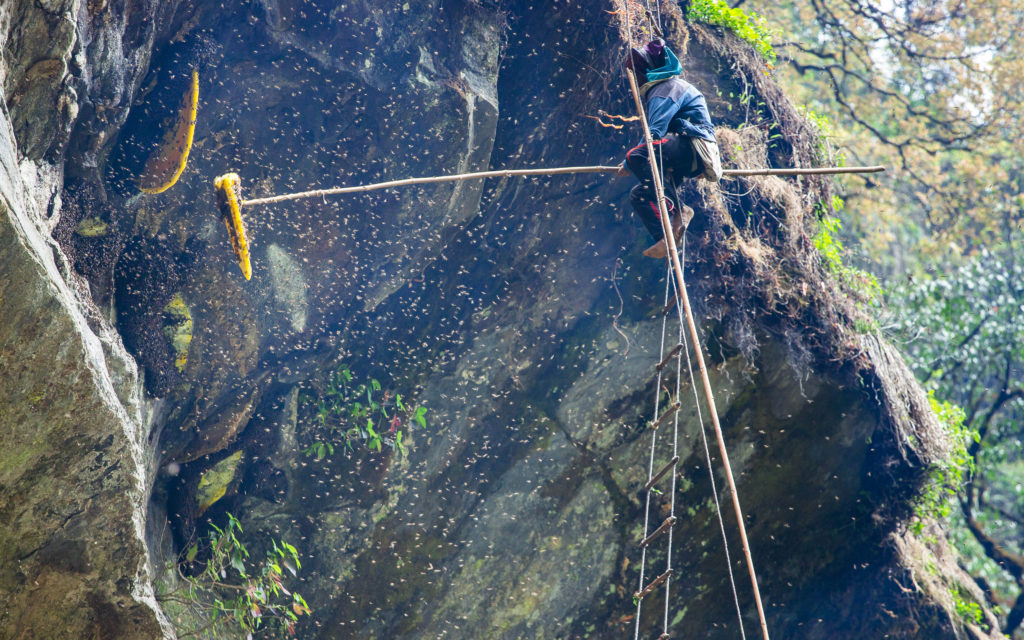
The lead honey hunter collects the honey with a bucket and passes it and the honeycomb down to team members (Photos 6 & 7).
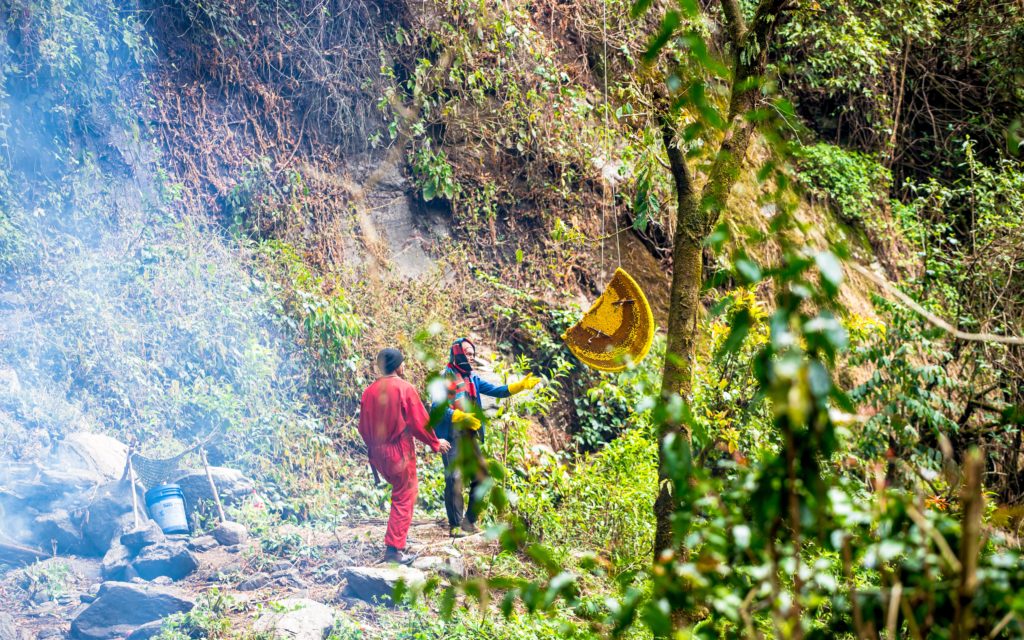
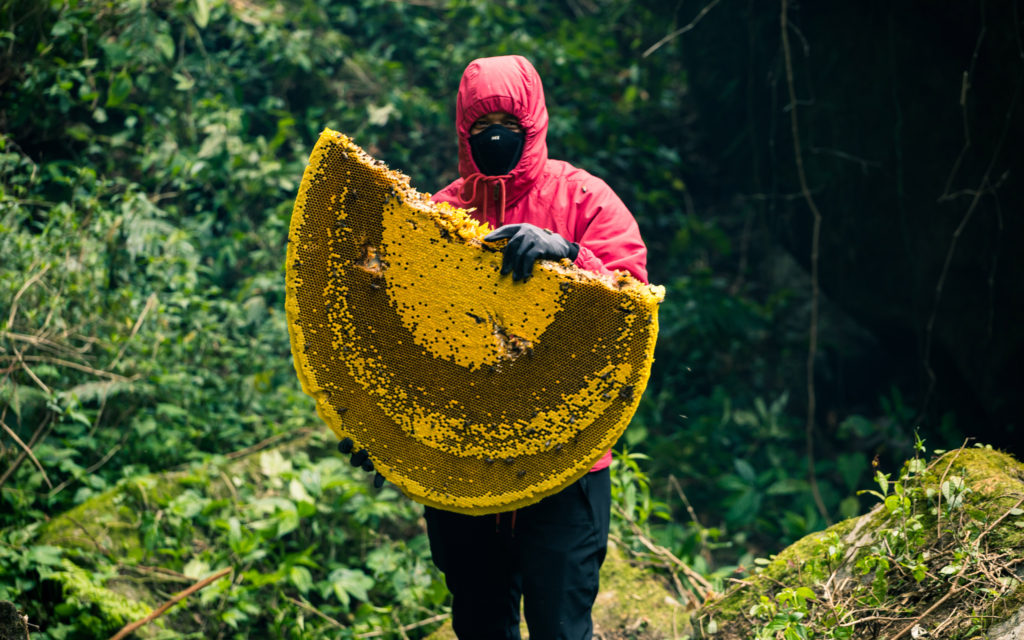
Finally, the adventure is over. The honey hunters gathered up all their equipment and the honeycombs. They needed to cross the river somehow, though there was neither bridge nor path to do so (Photo 8). The local people make temporary paths using wood and stones. Our journey was really an unexpected adventure. Successfully, we returned to Siding Village, home to a group of honey hunters in Nepal.
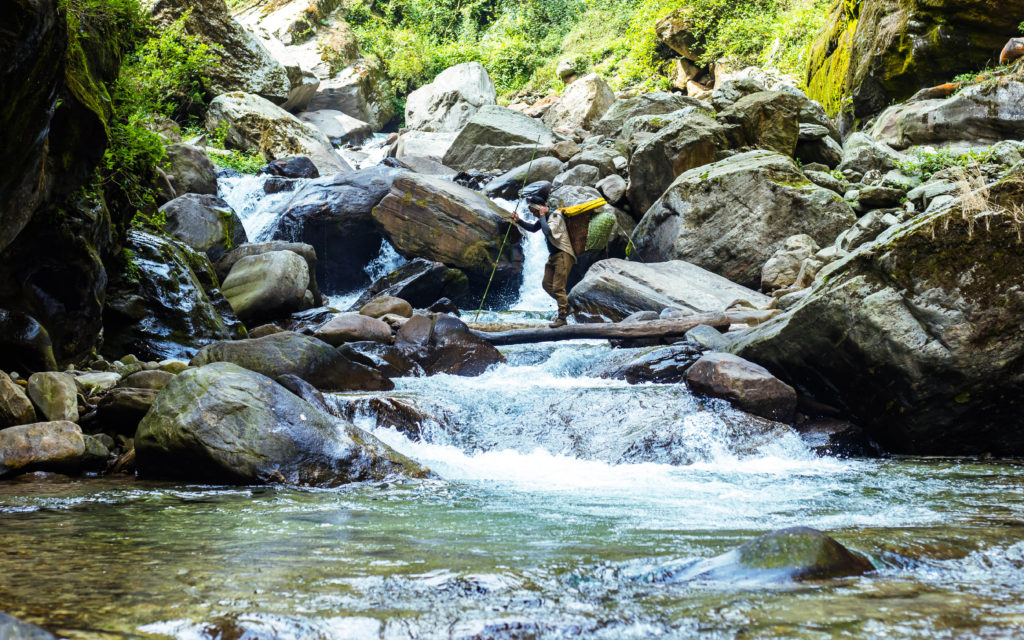
There is a need for more publicity concerning honey hunting in order to bring in local and foreign tourists.
We would like to thank Mr. Raj Kumar Tamang and the Click Nepal Photography Group for this well-organized, honey-hunting trip and amazing photographic opportunity.
The Author
A.P. Tolang is from Nepal and now lives in Kathmandu. He is a traveler who loves spending his time in the mountains either by hiking, trekking, or pursuing travel photography. A.P. tries to expose and promote the beauty of life through his lens. Readers can follow A.P. Tolang on Instagram @gorkhe1980.



